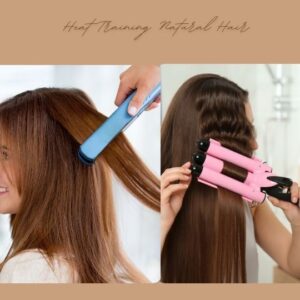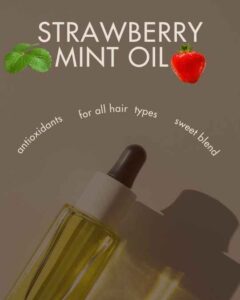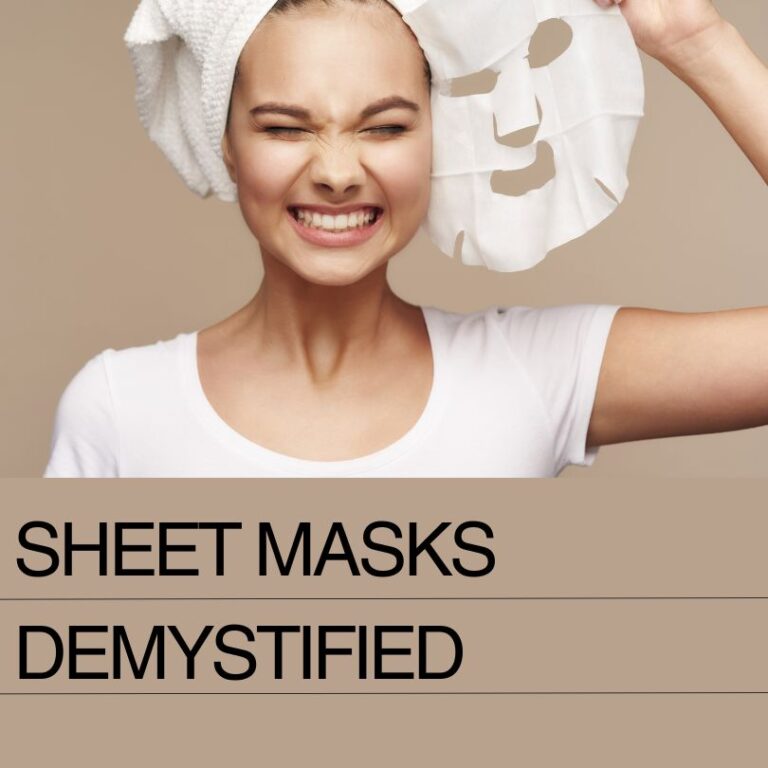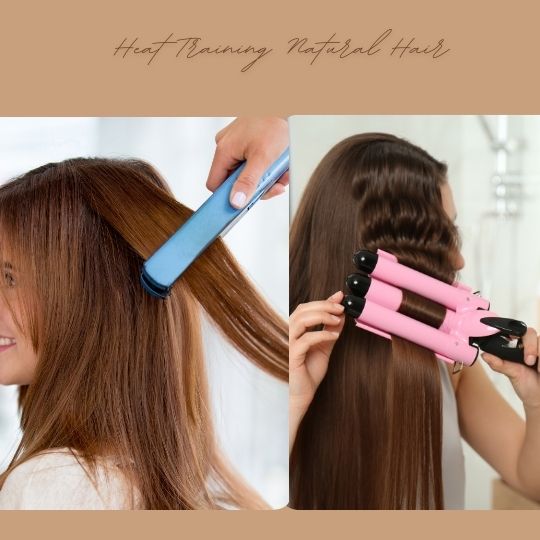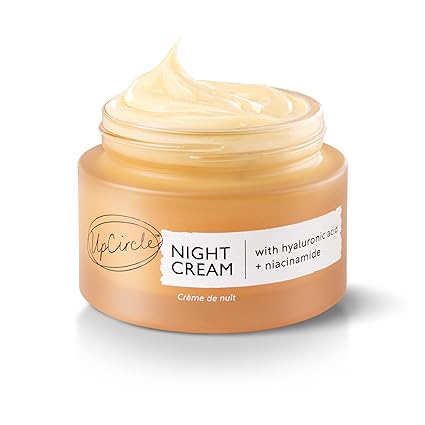Stress and anxiety are two attributes that present a picture with hair-care problems. Stress and anxieties are not only poisonous to the mental and ones emotions but the physic body and hair as well. It was discovered that stress and health of hair are inversely related since stress could make hair begin to fall, thin or even experience other related issues when one is stressed for a long time or extremely stressed. It is therefore important and useful to get to know more on how stress impacts hair growth and what general steps can be taken to ensure that hair remains healthy.
In this article, we delve into the connection between anxiety and stress-related hair issues. we also providing insights into managing stress for healthier and happier hair.
Table of Contents
ToggleThe Connection Between Stress and Hair
Yes, it’s true – stress can have a direct impact on the health of your hair. From hair loss to dryness, your tresses can reflect your mental state more than you’d like. Buckle up, we’re about to uncover the mysteries of stress and many manifestations. Stress can throw this cycle out of whack, leading to less time in the growth phase and more in the shedding phase.
Effects of 4 Stages of Growth
If there is anything that people have learned over the years it is the fact that self-care and stress management are equally as important to hair care as they are for physical well-being. The Anagen phase is similar to the stage most would consider prime – your hair is , and it may p last up to 7 years depending on heredity. At this stage, your hair is growing at the rate of half an inch on the scalp every month ,which might not look like a lot but is quite significant in length.
There is, however, when the Anagen phase comes to an end, it gives way to the Catagen phase. This is the transition phase where hair follicle begins to reduce its size and moves away from dermal papilla. And then we have the stage that is also known as the Telogen phase or the resting phase in which your hair lives a quite passive life for about 3 months before it finally sheds and a new hair grows in its place. Well then, that is pretty much the gist of it when it comes to the beautiful cycle that hair goes through as if it is in its own little world in the process of growing and shedding.
The Telogen Effluvium otherwise referred to as stress hair loss is a condition in which stress hormones such as cortisol interfere with the conventional hair growth cycle. Usually, hairs on a human scalp are in three-stage cycle, that is growth stage or anagen, resting stage or catagen, shedding stage or telogen and regrowing stage while a new hair or anagen is in growth state.
This situation is typically transient and may be linked to stress, either physical or emotional, or medical conditions like, hormonal changes, or side effects of certain drugs. Even though Telogen Effluvium can be embarrassing and frustrating, its crucial to identify the cause of the stress and take good care of the body with the hope of coming up with the appropriate cure.
This condition is usually temporary and can be triggered by various factors such as emotional or physical stress, illness, hormonal changes, or certain medications. While Telogen Effluvium can be alarming and distressing, it is important to address the underlying stressors and practice self-care to help manage symptoms. Additionally, seeking professional advice from a dermatologist or healthcare provider can provide further guidance on how to treat and cope with this common form of hair loss.
Impact of Anxiety on Hair Growth Cycle
Anxiety – the stress’s edgy cousin who loves to crash the hair party. Get ready to explore how your anxious mind can disrupt the delicate balance of your hair growth cycle. Who knew your worries could show up in your strands?
When anxiety comes knocking, it can throw your hormones into a tizzy. And guess what? Hormonal imbalance is like a not-so-nice surprise package for your hair follicles. Say hello to potential hair thinning and loss brought to you by anxiety.
Anxiety-Induced Scalp Conditions
That itchiness, flakiness, or excessive oiliness on your scalp? Yep, anxiety might be the culprit behind those pesky scalp conditions. You can try using special shampoos with ingredients like salicylic acid or ketoconazole. Use good hair products that are vegan-free and less chemically. These can help calm down the irritation and get rid of the flakes. Don’t scratch your scalp too much! It’s important to be gentle so you don’t make things worse. Scratching too hard can lead to infections. So be kind to your scalp and treat it with care!
Thinning Hair and Hair Loss
One moment you’re rocking a thick mane and the next, you’re staring at sparse patches on your scalp. Stress and anxiety can team up to thin out your hair and trigger shedding. Time to bid adieu to those lost locks. you should start working on your hair if you love the hair.
Dry, Brittle Hair and Breakage
Stress and anxiety can suck the moisture out of your strands, leaving them dry and prone to breakage. stress and anxiety slow our happy glands. They impact all our body parts not only hair.
Grey hair
Hey, did you know that premature graying of hair can be reversible? So, get this – one of the main reasons behind premature graying is stress. Yep, when you’re super stressed out, your body produces more cortisol, which can disrupt melanin production in your hair follicles. And guess what? Melanin is responsible for giving your hair its color!
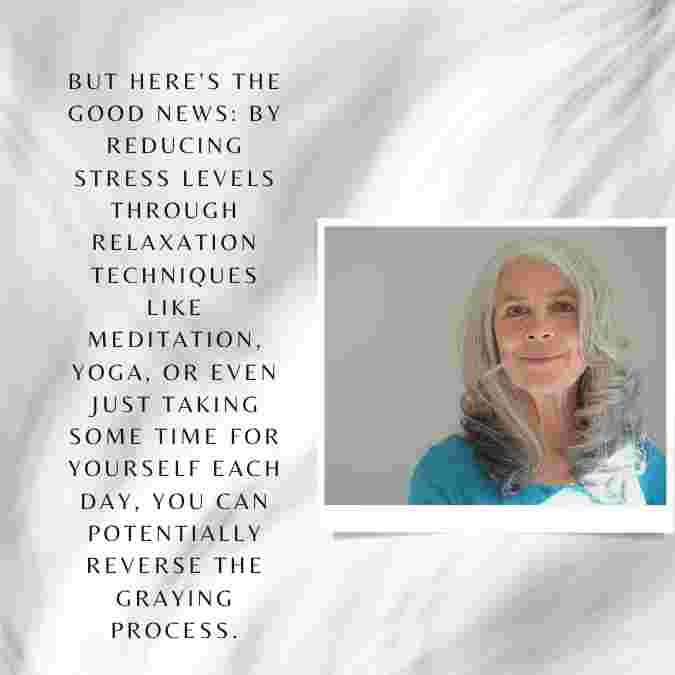
The Science Behind Stress-Related Hair Loss
Okay, time to get a bit geeky – but don’t worry, we’ll keep it light and breezy. Ever wondered how stress makes your hair bid farewell? Well, it all comes down to a little thing called the hair growth cycle and the not-so-friendly cortisol hormone. Ready to unravel the science behind stress-related shedding?
Strategies to Manage Stress for Healthier Hair
Stress can wreak havoc on our hair, causing anything from excessive shedding to lackluster locks. But fear not, there are ways to combat this hair-raising issue. By incorporating stress-reducing techniques and healthy lifestyle habits into your routine, you can help your hair shine bright like a diamond once again.
Take a breather, literally. Incorporate mindfulness practices like meditation or yoga into your day to calm your mind and reduce stress levels. Exercise regularly to release those feel-good endorphins that can help counteract the effects of stress on your hair. Remember, a relaxed mind equals happier hair!
Healthy Lifestyle Habits for Better Hair and Overall Well-being
Eating a balanced diet rich in nutrients like vitamins A, C, D, and E can do wonders for your hair’s health. Stay hydrated and get plenty of beauty sleep to give your hair the TLC it deserves. Regular scalp massages to increase blood flow and promote healthy hair growth. You can use oil and hot hair oil treatment.
Professional Treatments for Stress-Induced Hair Issues
When stress has taken a toll on your tresses and you need a little extra help, there are professional treatments available to restore your mane to its former glory. From medical interventions to consulting with hair and scalp specialists, there’s a solution out there to address your stress-induced hair woes.
In severe cases, medical interventions like prescription medications or hormone therapies may be necessary to combat stress-related hair loss. Consult with a healthcare professional to discuss the best course of action for your specific situation.
For personalized care and targeted treatment, consider seeking advice from hair and scalp specialists. These experts can assess your hair and scalp condition, recommend specialized treatments, and provide valuable tips for maintaining healthy hair.
READ MORE:
15 best shampoo for dry damage hair, Try Must
The Ultimate Guide: Hair Care Ingredients to Avoid for Healthier Locks”
Conclusion
To sum up, it is crucial to take into consideration how stress and anxiety can affect the wellbeing as well as the hair. It is incumbent upon one to perceive how stress affects hair and ensure that they follow proper measures that would enable them to conquer it hence maintain healthy hair besides the wellbeing of the body. Can you remember the time when people come across as unsympathetic when you speak of mental health issues as they do with hair issues?



